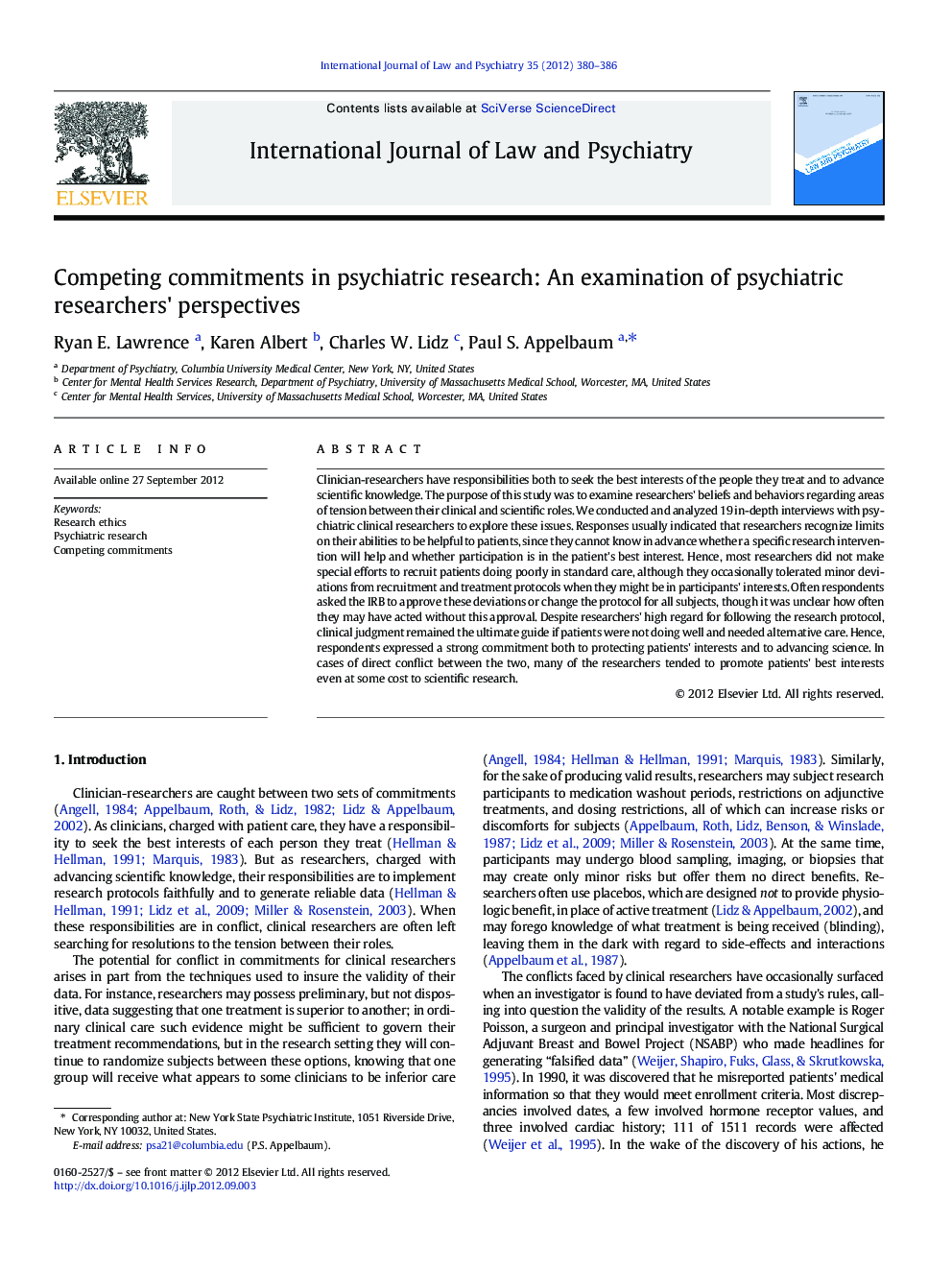| Article ID | Journal | Published Year | Pages | File Type |
|---|---|---|---|---|
| 100935 | International Journal of Law and Psychiatry | 2012 | 7 Pages |
Clinician-researchers have responsibilities both to seek the best interests of the people they treat and to advance scientific knowledge. The purpose of this study was to examine researchers' beliefs and behaviors regarding areas of tension between their clinical and scientific roles. We conducted and analyzed 19 in-depth interviews with psychiatric clinical researchers to explore these issues. Responses usually indicated that researchers recognize limits on their abilities to be helpful to patients, since they cannot know in advance whether a specific research intervention will help and whether participation is in the patient's best interest. Hence, most researchers did not make special efforts to recruit patients doing poorly in standard care, although they occasionally tolerated minor deviations from recruitment and treatment protocols when they might be in participants' interests. Often respondents asked the IRB to approve these deviations or change the protocol for all subjects, though it was unclear how often they may have acted without this approval. Despite researchers' high regard for following the research protocol, clinical judgment remained the ultimate guide if patients were not doing well and needed alternative care. Hence, respondents expressed a strong commitment both to protecting patients' interests and to advancing science. In cases of direct conflict between the two, many of the researchers tended to promote patients' best interests even at some cost to scientific research.
